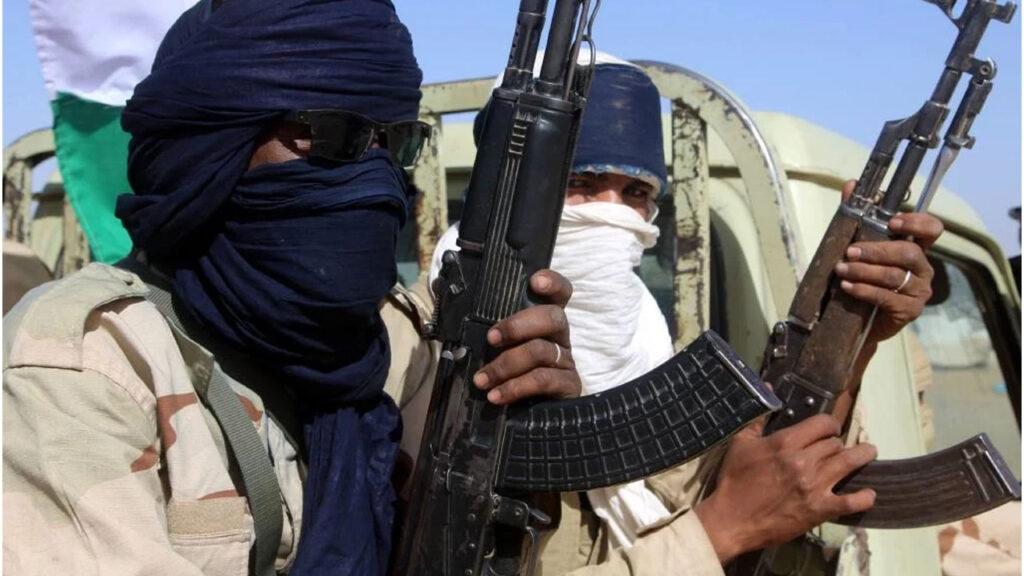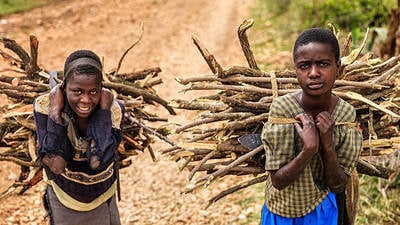Dear Beamers,
Greetings! In our ongoing commitment to providing informative updates, we are pleased to present this week’s newsletter, which addresses an issue that has significantly contributed to uneasiness in our nation.
Let’s talk about your right, my right, our rights as Nigerians. Human rights in Nigeria are protected under the current 1999 constitution, which guarantees fundamental rights. However, persistent violations highlight the need for improvement in several areas. Despite significant strides, challenges persist, necessitating a collective effort to ensure the effective protection and realization of the rights of every Nigerian citizen.
The scope of human rights in Nigeria is marred by pervasive violations, encompassing the right to life, health, freedom from discrimination, freedom of association, peaceful assembly, equal protection of the law, dignity of human person, right to work, means of livelihood, employment, and the right to development. Virtually every facet of human rights is breached, contributing to an environment that makes life unbearable for its citizens.
The armed conflicts orchestrated by Boko Haram and Fulani Herdsmen has resulted in the tragic losses, injuries, and displacement of numerous civilians. Violations of international law, including war crimes, have been committed by both parties with impunity. These attacks, particularly those targeting villagers, farming communities, and transportation users, are deemed war crimes. The unarmed victims have faced severe restrictions on their rights to life and peaceful assembly.
Iluyomade Moses asserts that the failure of our leaders to protect people from these egregious attacks has resulted in deaths and displacement. According to Iluyomade,
“The intensification of banditry activities in Nigeria’s north-west, coupled with the lack of protective measures from authorities, has allowed armed groups to seize control, imposing taxes and curfews, severely restricting communities.”
He continued “In the south-east, the onslaught of unidentified gunmen perpetrating hit-and-run attacks, killings, and property theft worsens the hardship faced by local communities. The reality of many children and young people being unable to attend school due to economic barriers, compounded by the heightened insecurity leading to schoolchildren abductions, demands urgent attention.”

In our nation, the cherished freedom of speech faces significant threats. While there have been improvements in press freedom measures, further enhancements are essential. Despite a multitude of independent newspapers contributing to genuine media pluralism in Nigeria, journalists encounter daunting challenges when covering sensitive topics such as politics, terrorism, or financial embezzlement by influential figures.
Nigerians yearn for a genuine sense of renewed hope regarding freedom of expression, both for individuals and the media. Even peaceful protests, intended as a platform for the masses to draw government attention and voice their concerns, have become increasingly challenging, with lives at risk.
“The tragic events during the EndSars protest, particularly the violent escalation in Lagos where many protesters were shot dead and wounded, breaks my heart till today. Despite widespread videos and pictures circulating online, the government’s confirmation of only two deaths in October raises troubling questions about the transparency of information. They acknowledged live rounds being fired in Lekki by the police but disputed the exact number of killings. The Lekki Toll Gate, once the protest headquarters, became a crying ground for Nigerians.” Says Umeh Andrew
EndSARS aimed to protest for police reforms and the complete disbandment of the Special Anti-Robbery Squad (SARS), among other grievances. Protestors asserted that Nigerian police officers, often associated with a history of corruption, were not sufficiently compensated despite their role in protecting citizens. This call for an increase in police salaries was part of the protestors’ five demands while advocating against police brutality.

After the regrettable events at Lekki Toll Gate, President Muhammadu Buhari, in a televised address, affirmed the dissolution of Nigeria’s contentious Special Anti-Robbery Squad (SARS) in response to the extensive EndSARS protests. Acknowledging instances of “excessive force” during the unit’s operation, he outlined plans to prosecute former SARS members for offenses including extortion, rape, and murder.
In the aspect of Corruption, Nigeria bears the unfortunate reputation of having one of the world’s highest levels of corruption, predominantly within the public sector. This manifests through embezzlement of public funds and the acceptance of bribes. Politicians frequently divert public resources to advance their political agendas, resorting to illicit means such as paying gangs to manipulate election outcomes.
Elections in Nigeria are marred by violence and blatant rigging, with visible instances of ballot boxes being stuffed by paid hoodlums. In some cases, electoral results are fabricated. The prevalence of violence and intimidation has significantly contributed to widespread political apathy, discouraging the general public from participating in the voting process. Fear of attacks by hired gangs further deters those who do venture out to cast their votes.
Furthermore, child labor is pervasive in Nigeria, particularly prevalent in the informal agricultural sector. Children are often engaged in the production of cocoa, cassava, vegetables, and animal rearing. This exploitation leads to extended hours spent on farms, significantly impacting their education, with some children missing out on formal education altogether.

Early marriage is widespread in Nigeria, particularly in the northern regions, often stemming from the belief that it prevents promiscuity. However, the primary cause is attributed to the poverty of the girls’ parents. Many Nigerian girls are married off before turning 18, driven by parents seeking a better life for their daughters. While some parents may have good intentions, it is crucial to recognize that denying a child the right to choose their life partner is a violation. The best interest of the child, not the parents’, should always be the paramount consideration.
According to Olatunbosun Joel, a human rights activist,
“Many girls are married off by the time they are 15, and some girls are married as early as age 9. These girls become extremely susceptible to unfortunate realities like disease and domestic violence. They are restricted access to education, they become teenage mothers with litttle or zero idea of what motherhood entails. Some parents give out their daughters to rich oldmen to defile them for some cheap dowries. No child deserves this humiliation of a living.”
Rights abuses in Nigeria manifest in various forms, both directly and indirectly. Perpetrators often go unchecked, as the judicial institutions face numerous challenges hindering accountability and justice. Additionally, there is a noticeable lack of trust and confidence in the courts, leading to general apathy towards judicial processes among Nigerians.
Hillary Steven, a practicing lawyer, expresses a prevailing sentiment among many Nigerians that the quality of judicial appointments has declined over the years. In his view,
“The current state of Nigeria’s court system paints a stark picture of hardship. Judges and court officers grappling with terrible pay, overcrowded facilities, and limited resources face an uphill battle for justice. The prolonged delays in resolving cases only worsen the situation, creating an environment where the acceptance of bribes becomes a desperate means of survival. This isn’t just a financial crisis; it’s a systemic challenge that threatens the very foundation of a fair and functioning legal system.”
The worsening human rights situation in Nigeria demands urgent attention, not only from the government but from every sector of society. It starts with individuals, fostering a sense of mutual care and refraining from exploiting social or financial privileges. Embracing a mindset of brotherhood, avoiding jealousy and envy, is pivotal. While human rights violations are a global concern, intentional efforts can make Nigeria an exception. Let’s uphold the ideals of ‘peace and unity,’ as echoed in our national anthem, and collectively work towards a society that values and safeguards the rights of every citizen.




